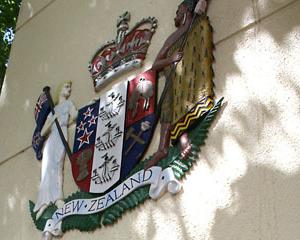In the Philippines every neighbourhood has a panderia, or bakery, where people go daily for their bread and sweet or savoury treats.
It is what Dan and Ana Valencia hope to re-create in Dunedin.
"It helps to bring us back home. When you eat fresh bread it is feeling like being back home," Dan says.
"It’s very nostalgic," Ana says.
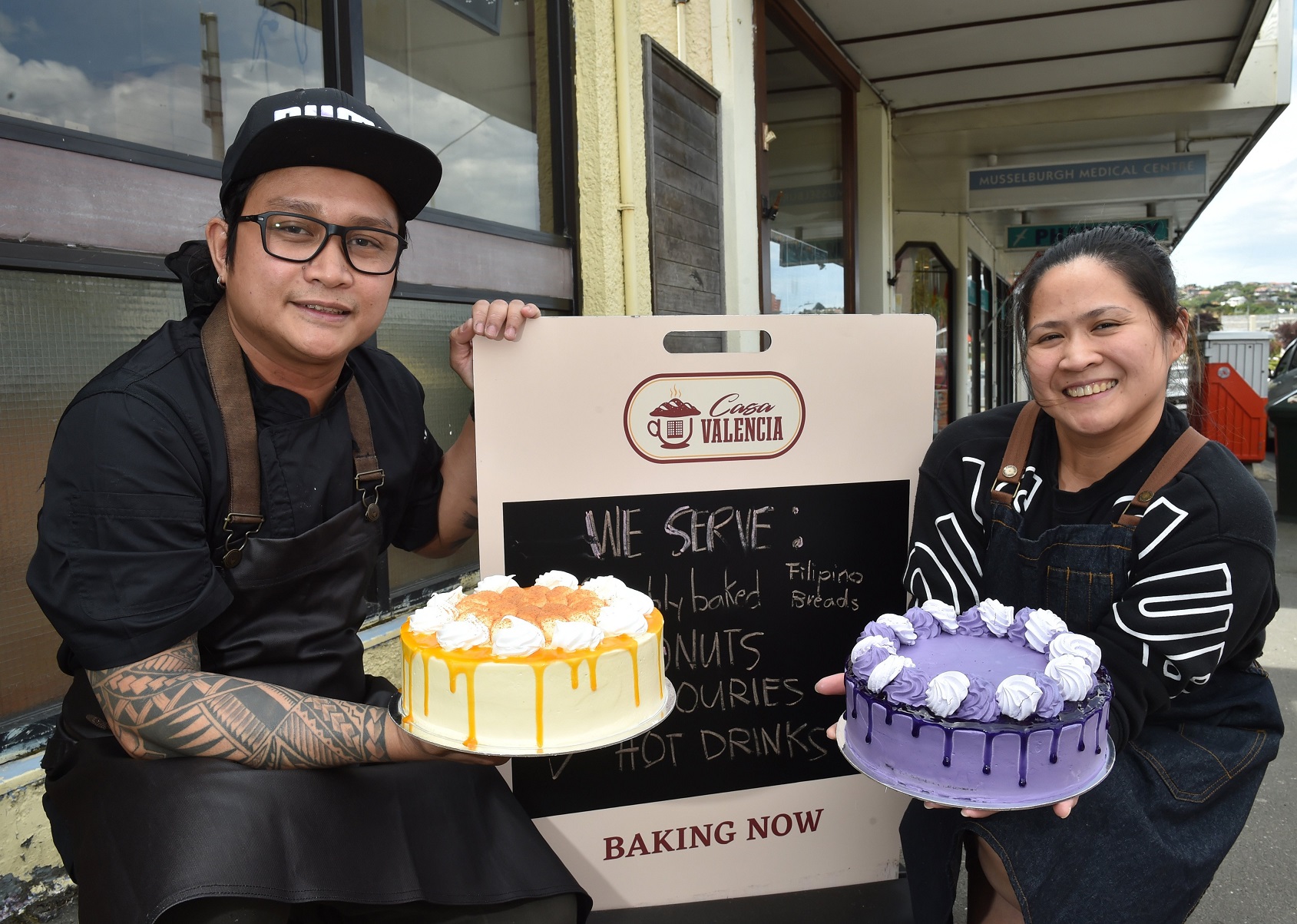
"I started out in high-end bakeries doing Filipino and European bread."
The Philippines has a strong baking culture, having been colonised by the Spanish under Magellan in the 1520s. It remained a colony until 1898 and many Spanish and Catholic customs and cuisines were adopted and adapted by Filipinos.
Christmas is an important season in the Philippines calendar starting from September when the "Ber" months (months ending in "ber") set in. They put up colourful lanterns or "parol" with colourful Christmas lights in homes, streets and businesses which symbolise the spirit of Christmas.
"Children visit houses singing Christmas carols or known as "caroling" during Christmas seasons. They are using hand-made tambourines, drums, guitars and other musical instruments and sing their hearts out in exchange for money or sometimes Christmas goodies."
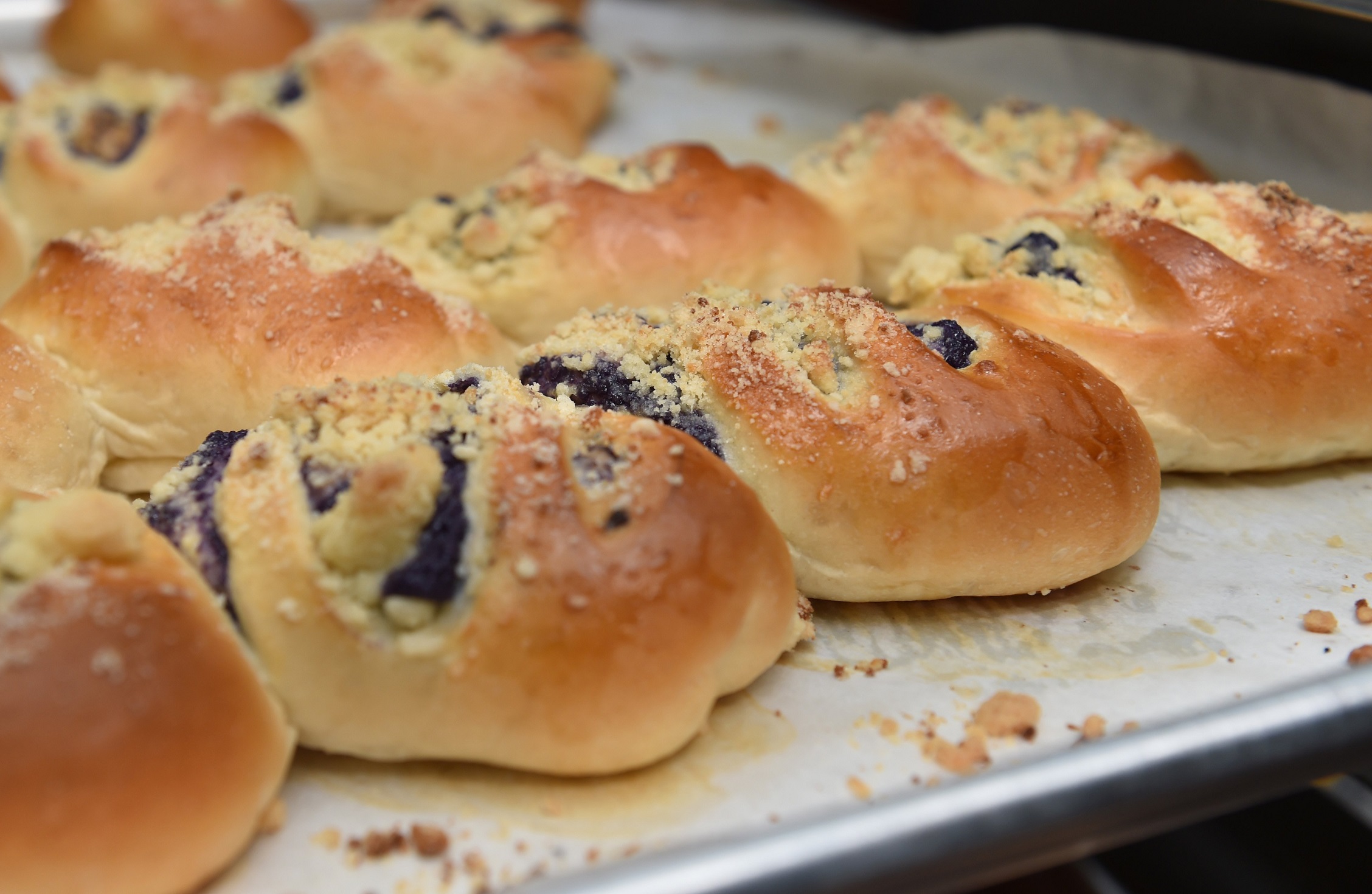
"Filipinos believe that your wish will come true once you completed the nine-day Masses."
Christmas parties are organised by groups from schools, workplaces and even households, where people showcase their talents, play Christmas games and exchange gifts.
Noche Buena is celebrated after the last Mass on Christmas Eve with family and friends going to their homes to wish each other a blessed Christmas.
"Most households have festive Christmas foods on the table to celebrate what most Filipinos believed in as the birth of Christ."
Panderias can be found in most neighbourhoods.
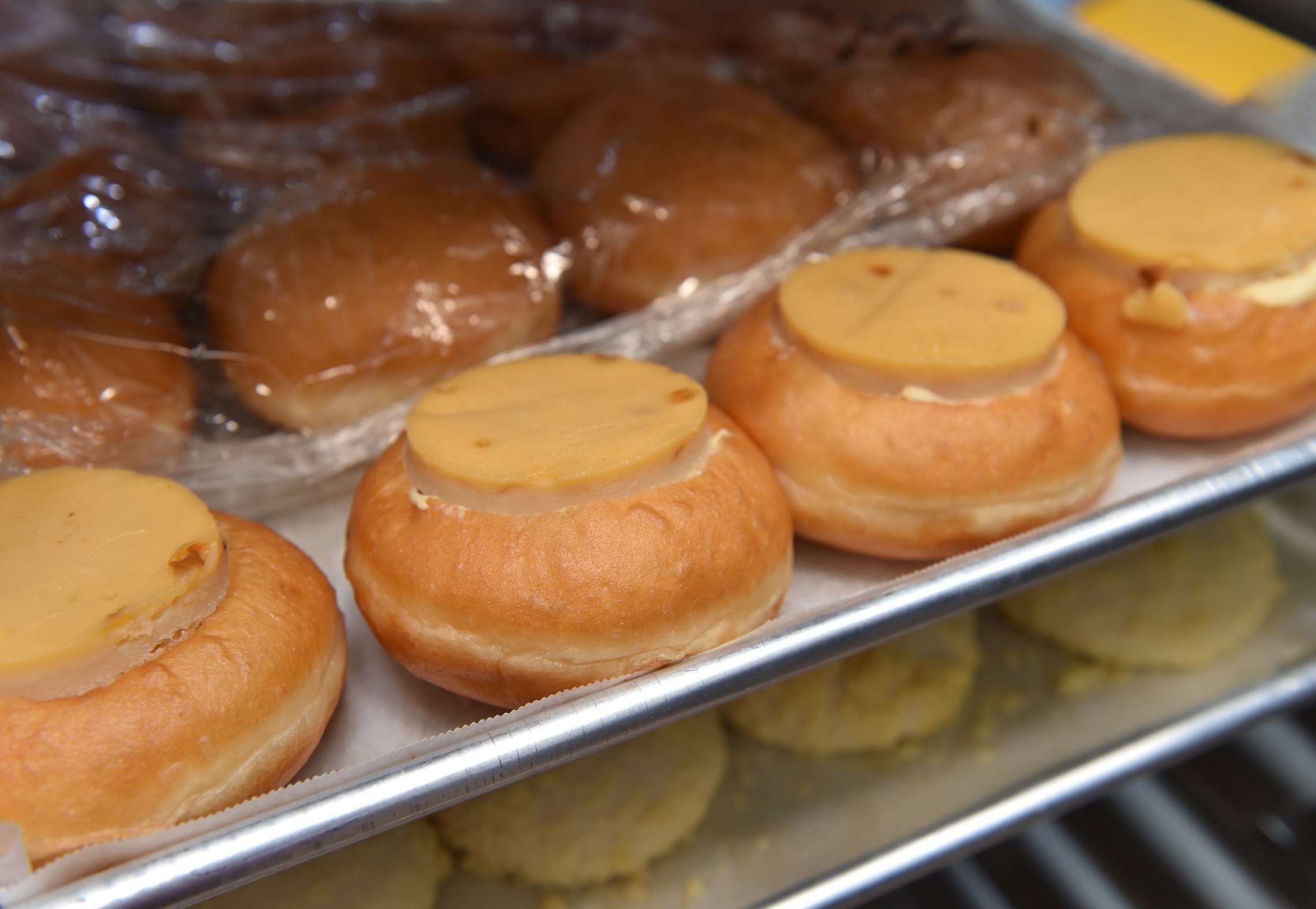
He remembers not wanting to miss school, as he would miss out on the bakery treats he got there.
One of those is the popular bakery item pandesal which literally means "bread of salt" and is simply made from flour, water, sugar and milk.
"Most breads are a Spanish thing like pan de coco, coconut bread, or the empanada."
During Simbang Gabi traditional Christmas delicacies are sold in the streets or outside churches.
"They are sweet treats such as the Bibingka, a type of baked rice cake traditionally cooked in a terracotta oven lined with banana leaves, and Puto Bumbong, a Filipino purple rice cake steamed in bamboo tubes."
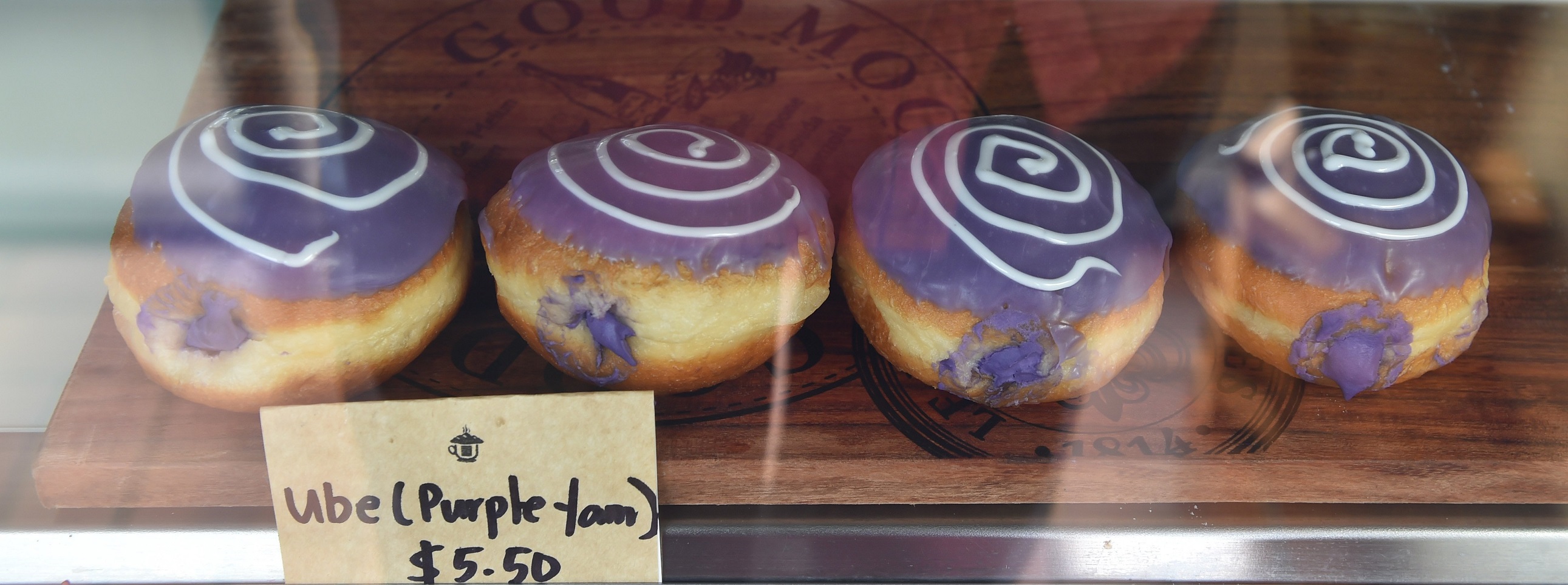
A couple of years after graduating from college, Dan left the Philippines for the Maldives, a popular destination for young Filipinos to travel to for work.
"We were living the lux life. The weather is similar to the Philippines."
He worked there for six years in resort kitchens and it is where he met Ana, who was working in sales and marketing for a resort. Each year they would save up their holidays and go back to the Philippines for a month.
"It’s a busy place with all the tourists."
A friend living in New Zealand and working for an Italian restaurant in Dunedin recommended Dan as a pizza chef to his boss so they came here.
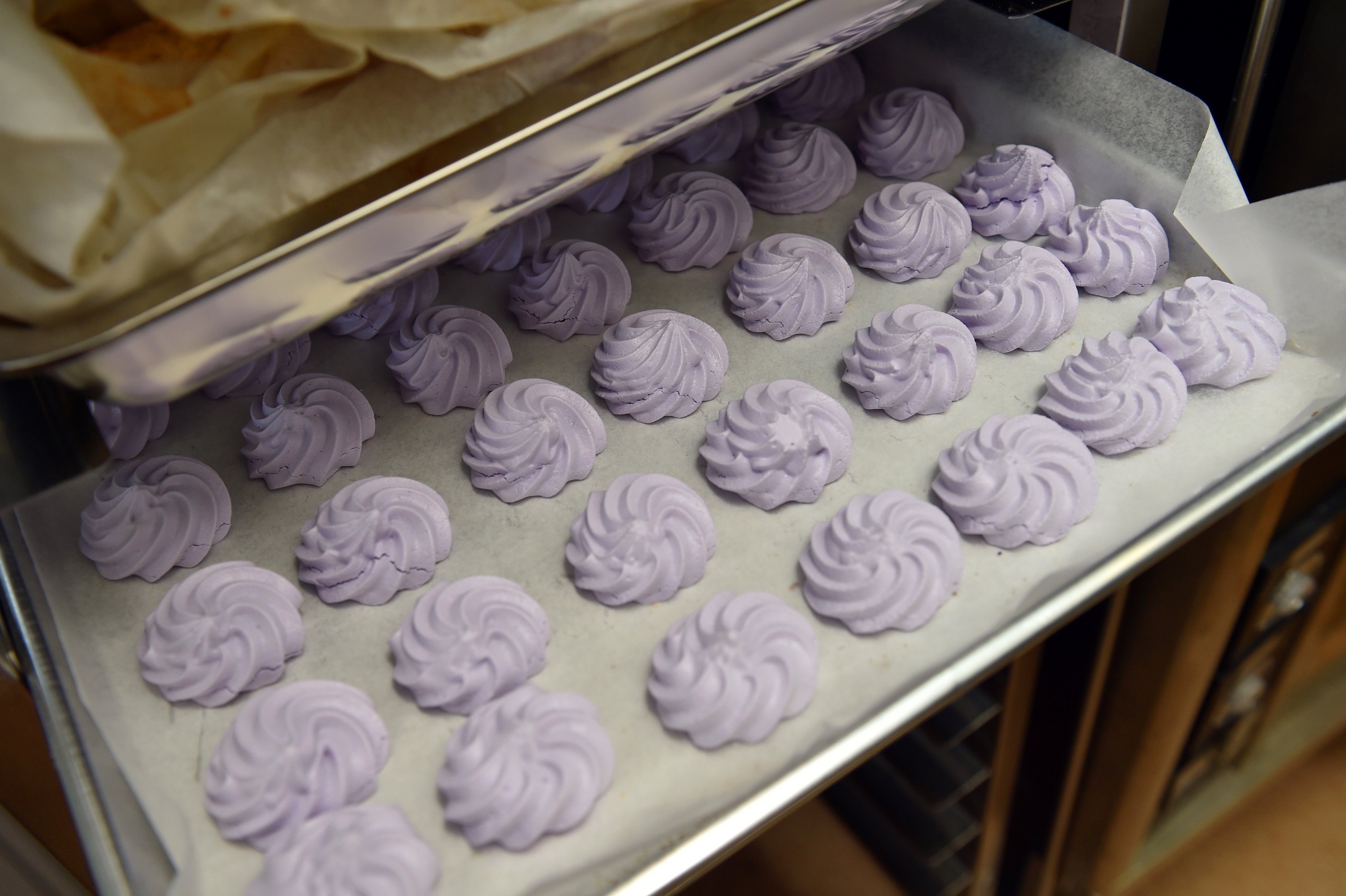
A year later he was lured to Christchurch to work in a Filipino bakery but the idea of opening his own place was too great. They decided to return to Dunedin to do it as there was no other Filipino bakery they knew of.
"My wife loves Dunedin."
Given his background in high-end bakeries, Dan wanted to take that approach to his own bakery, combining it with traditional Filipino recipes.
"Local bakeries back home do it all by hand, mixing the dough. I’m doing a modern way of baking. I have a dough mixer, a machine to prove. I use modern technology, high-tech equipment, even alone I can do a lot of stuff."
One of the key ingredients in Filipino baking is purple yam, which Dan buys in grated and frozen. It is a very versatile vegetable which Filipinos also use in savoury cooking.
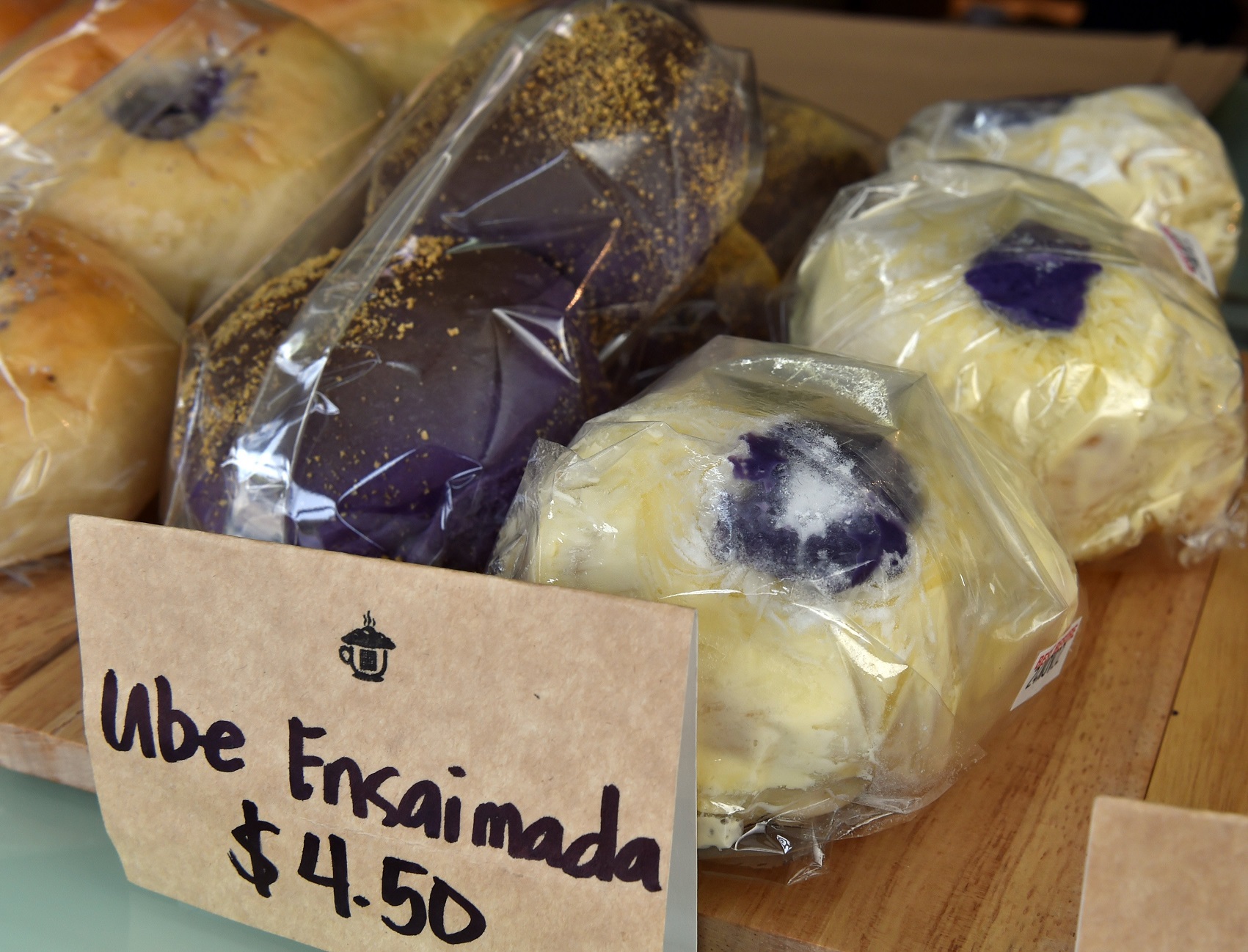
The yam, a tuberous root vegetable indigenous to the Philippines is similar to kumara. It is boiled with milk and sugar if being used in sweet dishes and heated slowly for 15-20 minutes, until it becomes sticky and sets when cooled. Then it is used as fillings in doughnuts or cakes.
Other traditional breads Dan is making are ensaymada, a brioche-like soft bun with cheese sprinkled on top, which is one of his favourites, and cheese bread, a denser, milkier bread topped with cheese.
"It’s sweet and savoury mixed together. Once you start eating you need another one. One is not enough."
Aware that many of their offerings are new for Dunedin, they are also making more easily recognisable Kiwi favourites but with a twist. They make filled doughnuts with a purple yam mousse with white chocolate ganache on top and a mango-cream filling with a Graham cracker. They also fill their ensaymada with salted caramel and the popular Asian red bean paste, as well as purple yam.
"We like doing something different, unique. We still have lots to invent."
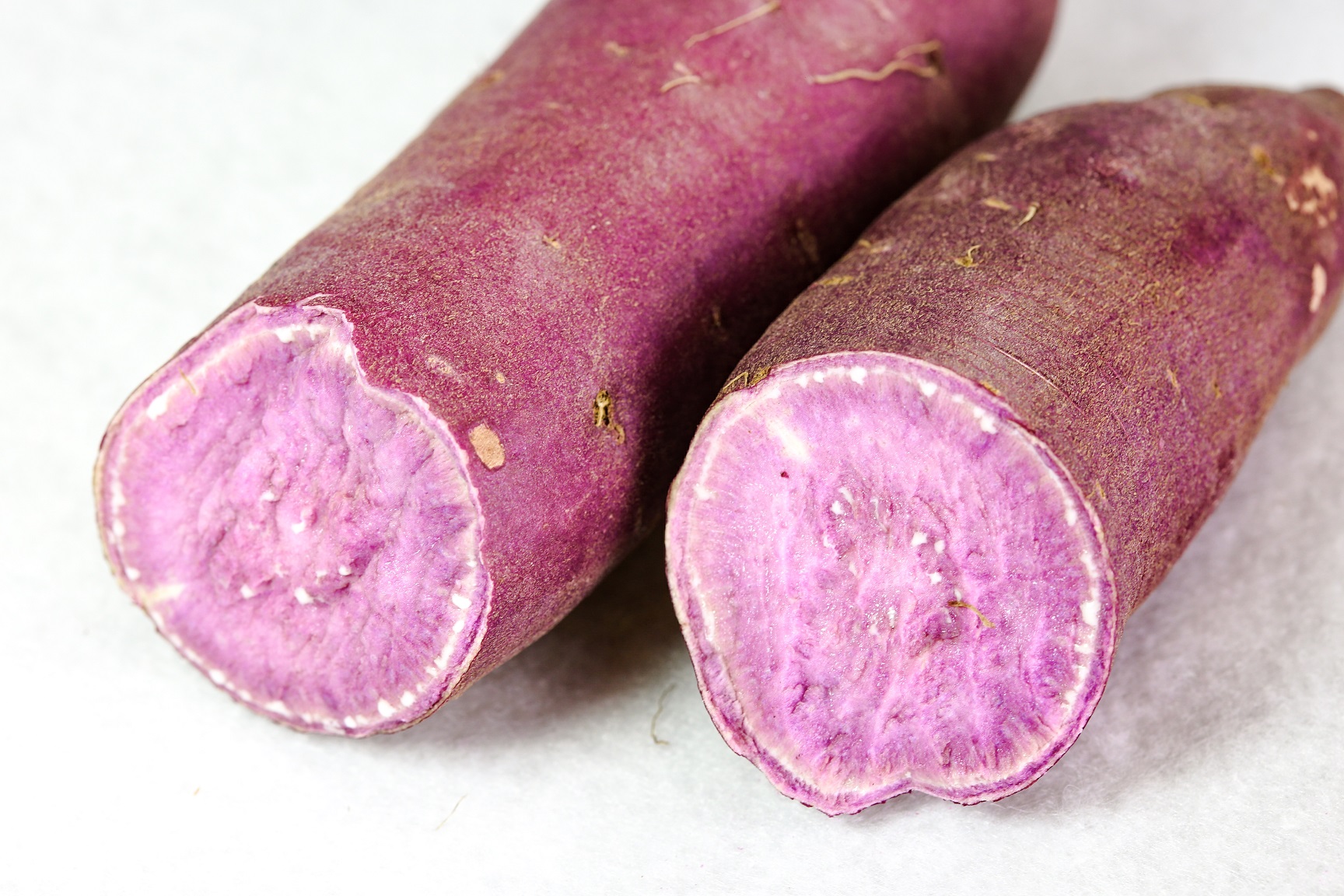
Ana’s contribution, other than being front of house, is making the leche flan, a creme caramel dessert made with egg yolks, milk and sugar and a purple yam latte.
"In the culture in the Philippines, when all the family members get together it’s the leche flan they’re looking forward to after the main dish. Our mothers, grandmothers made it traditionally," Ana says.
It became popular in the Philippines as it did not need to be cooked in an oven, which many people did not have, and it is cooked easily on the stove top.
"Back home my grandma cooked it on a charcoal stove, you put the steamer on top. Everyone could do it," Dan says.
To avoid wasting the egg whites from this dish, Dan turns it into meringues which he uses to decorate his purple yam and mango cakes.
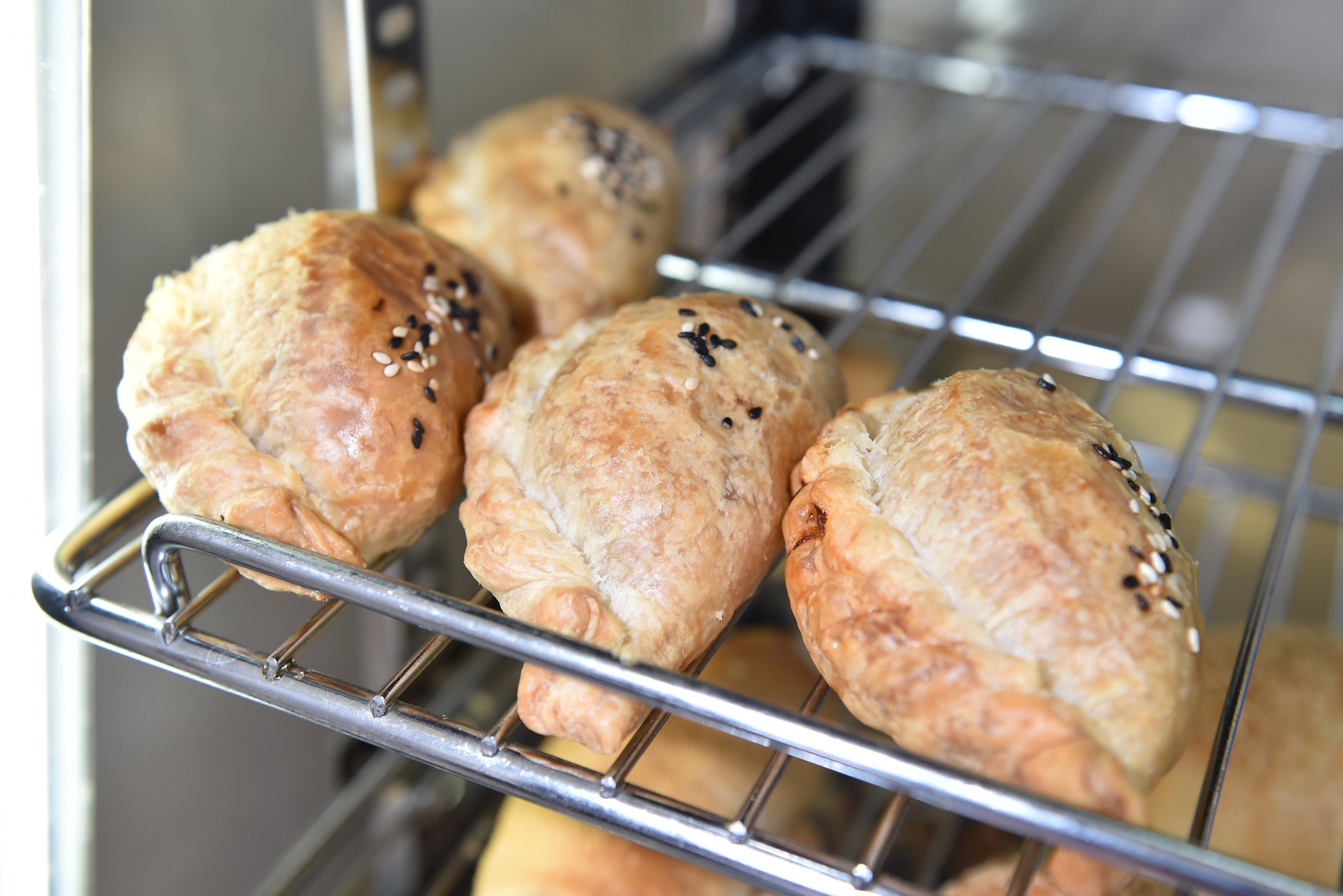
Once established they hope to hire staff to help out and believe their experience with workers themselves will ensure they become part of the family.
The reaction from customers so far has been positive and people are happy to try the different flavours.
"It’s all new for them, so one by one, my wife is explaining to them so they get more familiar. Each bread has a story behind it. I’m very glad the community is embracing us."
As for them Christmas is about love, giving and celebrating the birth of Jesus Christ so to be able to share that through their Musselburgh bakery is special to them.
"As Filipino, we love food. We make sure that every Christmas there’s a feast to be shared not only with our family but also with the other people."

